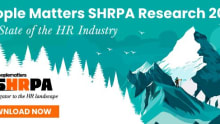Singapore workers pioneer generative AI revolution

SINGAPORE – A recent survey commissioned by UiPath, an enterprise AI and automation software company, has revealed that 60% of workers in Singapore are using generative AI at work.
This positions the city-state alongside Hong Kong as having the highest percentage of global users of gen AI. This investigation into AI usage comes amid challenging economic conditions and uncertain growth recovery in Singapore, with many employees facing increased workloads.
Rising burnout and the need for AI solutions
The survey, which included 1,133 full-time workers in Singapore, highlighted that almost a third (30%) of employees reported feeling extremely or very burnt out, an increase from the previous year's 26%.
This sentiment is pushing workers to seek solutions such as reduced workloads, more time to complete tasks, and access to AI and automation tools. Specifically, 43% of employees expressed a desire for gen AI tools to help mitigate these pressures.
The benefits of using gen AI in the workplace
Interestingly, the results show that Singapore workers perceive tangible benefits from using gen AI at work. A significant 62% of respondents indicated that gen AI had saved them time on work-related tasks, with more than two in five (42%) saving 10 or more hours.
This time-saving has allowed employees to engage more in creative tasks (53%), spend more time with family (49%), and even end their workday earlier (45%).
Despite these advantages, the study found that 65% of workers are not combining gen AI with business automation. However, the subset that does use both technologies reports notable productivity gains: half of these users saw increased productivity, and nearly as many (46%) experienced an improved work-life balance.
Jess O’Reilly, Area Vice President for Asia at UiPath, commented on the findings: “To realise Singapore’s ambition to become a global AI hub through the National AI Strategy 2.0, wide adoption of technologies like gen AI and business automation will be critical to sustain its competitive advantage in a digital economy. For businesses that haven’t been able to turn AI potential into results, automation is a crucial piece of the puzzle that makes AI actionable.”
Trust and concerns around gen AI usage
The survey also reported that 58% of Singapore workers believe gen AI tools have the necessary context from their business’s data to support and enhance business processes. However, concerns remain regarding security risks (38%), inaccurate outputs (34%), and compliance risks (31%).
Trust in AI output among Singapore workers stands high, with 66% expressing confidence in gen AI outcomes, a significantly higher percentage compared to the global average of 48%.
Nonetheless, there is a noticeable gap in company guidance, as 42% of employees indicated a lack of training or guidelines on how to effectively use gen AI tools.
Younger generations are at the forefront of AI adoption in the workplace, with 77% of Gen Z and 66% of Millennial respondents affirming that gen AI has saved them time on work-related tasks, in contrast to 50% of Gen X and 37% of Baby Boomers.
Trust in AI outputs also varies by age group, with 78% of Gen Z, 68% of Millennials, 57% of Gen X, and 60% of Baby Boomers expressing trust in the technology.
Enhancing productivity with gen AI tools
Gen AI tools have been shown to significantly enhance productivity in several ways, particularly in drafting communications (44%), summarising long-form content (34%), and brainstorming (34%).
O’Reilly concluded, “The findings from our survey indicate that Singaporean workers who do utilise both technologies have seen greater productivity and an improved work-life balance. To inculcate a more fulfilled workforce, initiatives to plug skill gaps, foster greater trust in AI, as well as strategic private-public partnerships will be key to help workers embrace digital transformation in the age of AI.”

















